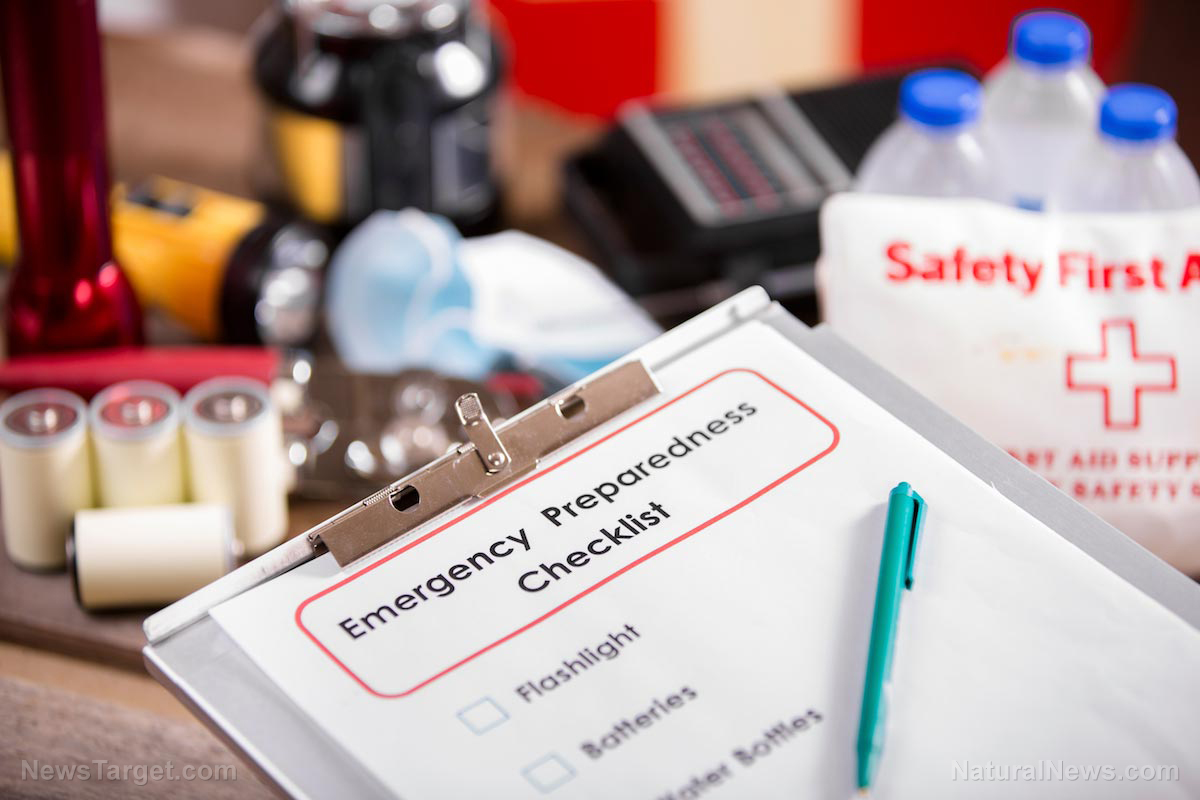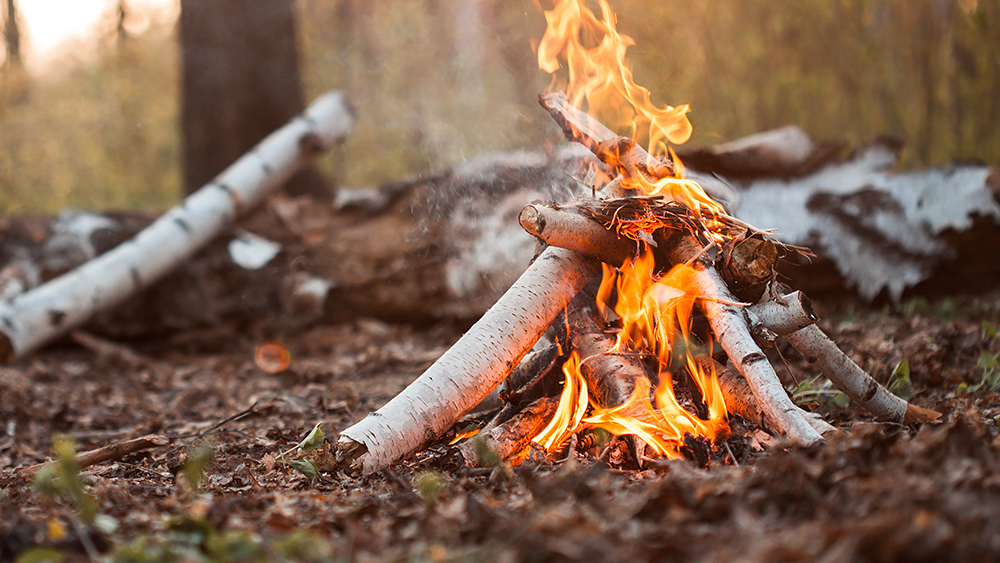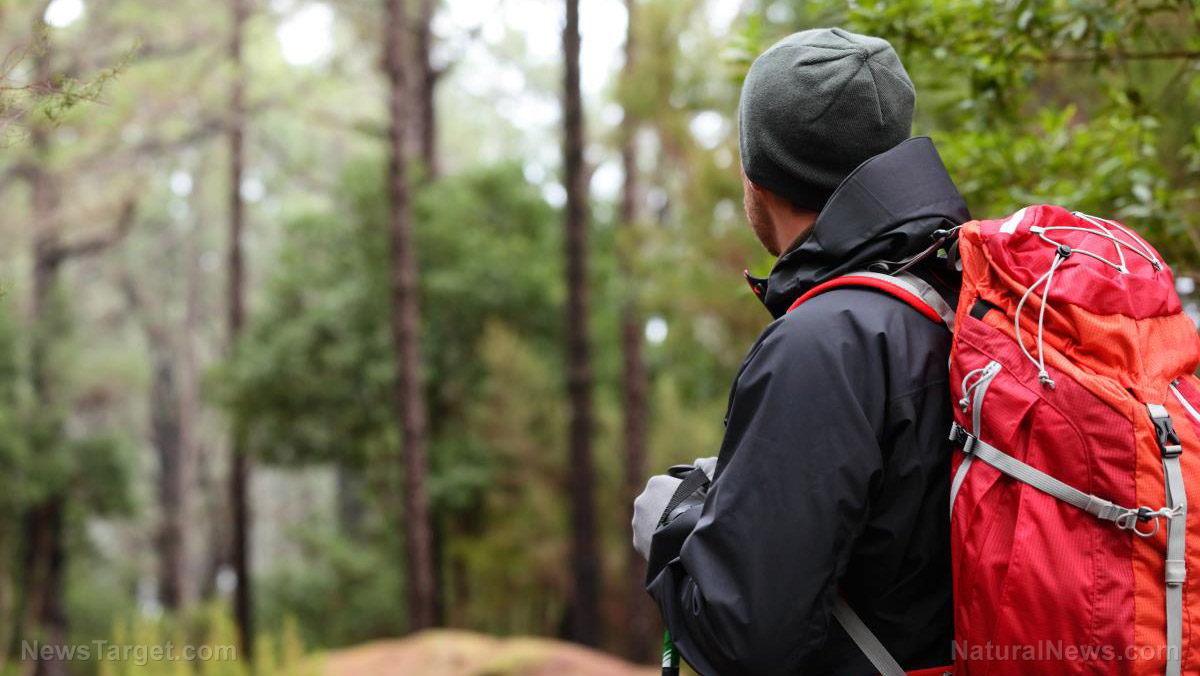
Preparing for an emergency can get overwhelming, especially for beginner preppers. There are so many skills to learn, kits to pack and supplies to stock up on.
If you need help getting ready before SHTF, here are 10 tips that will help you prepare essential emergency supplies for your family. (h/t to FoodStorageMoms.com)
Emergency supplies are items that you will need in a survival scenario like a natural disaster or a long-term power outage. These supplies can also be used if you are stranded or lost and you need to survive alone until help arrives.
Take things slowly, plan ahead and make detailed lists so you can prepare before SHTF.
Assemble a survival kit
A survival kit or bug-out bag contains supplies that you may need in an emergency. Your kit should include items like food, water, a basic first-aid kit, materials for building a shelter and a change of clothing for at least three days.
Instead of buying pre-assembled survival kits, you can put a kit together yourself. Personalize it based on your family's specific needs and your location.
Prep a car emergency kit
If you are stranded in your car when SHTF, you will need a car emergency kit. Your kit should be different from your bug-out bag. Include items like food, water, a first-aid kit, a flashlight with spare batteries and blankets.
Always bring your car emergency kit on day trips or longer vacations. Keep your car emergency kit in an easily accessible location in your car.
Draft and finalize your emergency preparedness plan
In a survival scenario, you need to have a detailed emergency preparedness plan so you can act quickly.
Before SHTF, take some time to draw up an emergency preparedness plan and discuss it in detail with the whole family. This ensures that everyone knows what to do and where to go when things go south.
When drafting your plan, include things like meeting places, evacuation routes and modes of communication. Once the plan is finalized, run drills regularly to make sure everyone knows what to do.
You need to have a reliable method of communication because you might need to get in touch with each other if you get separated.
Stock up on non-perishable food items
Before disaster strikes, it's important to stock up on non-perishable food items. If you lost power or water, you can use your supply to feed yourself and your family.
Here are some non-perishable food items to stock up on:
- Beans
- Canned fish
- Canned soups and chili
- Cereal
- Dried fruits and vegetables
- Flour
- Grains
- Honey
- Jerky
- Nuts
- Peanut butter
- Pasta
- Powdered milk
- Seasonings
- Soups
- White rice
Tips for storing non-perishable food properly:
- Store canned goods in a cool, dry place. Rotate them so your supply doesn't go to waste.
- Store dried fruits and vegetables in airtight containers or bags. Check for expiration dates and keep them in a cool, dark place.
- You can store peanut butter and other nut butters in their original containers. Once opened, refrigerate peanut butter.
- Jerky can be stored in a cool, dark place, but it's best to consume it within a few months.
- Store pasta in airtight containers or bags. If you have dry pasta, it can last for up to two to eight years depending on how it's stored.
- Store beans in airtight containers or bags. If you have dry beans, they can last for about two years.
Stock up on water
When SHTF, you will need lots of water for drinking, cooking and cleaning. Store at least four gallons of water per person per day in your home.
If you live in an area with frequent power outages, invest in a water filter so you can drink from any source of water available if your supply runs out.
There are different kinds of filtering systems in various sizes, volume capacities and filtering techniques (e.g., gravity fed or pump fed).
Take inventory of your emergency supplies
Regularly take inventory of your emergency supplies so you can check if everything is in working order. You also need to make sure you have enough supplies and bug-out bags for the whole family.
Do inventory checks at least every six months. Replace expired items and add new items as needed.
Prepare a first aid kit
A first-aid kit is another important item for your emergency supplies. Prepare a kit with items like band-aids, antiseptic wipes, burn ointment and a thermometer.
You can buy a pre-packaged first-aid kit but it's better to put one together yourself so you can personalize it for your family's needs, such as medication for any allergies or medical conditions. (Related: Prepping must-haves: Medical supplies and first aid kits.)
Save money for an emergency fund
When dealing with an emergency, you will sometimes need money to cover unexpected expenses.
There is no set amount to put aside since your circumstances may be different from other preppers, but save at least $500 in your emergency fund. With $500, you can survive for at least 72 hours, but saving more is advisable so you don't run out of money in a long-term survival scenario.
If your budget is tight, start an emergency fund by setting aside a small amount of money each month.
Is an emergency fund the same as your rainy day fund?
It's best to have an emergency fund and a rainy day fund. Your rainy day fund is a set amount of money that you save for unexpected expenses, like a car repair or medical bill.
You will need your emergency fund for major unforeseen events like a natural disaster or unemployment. Try to save more money in your emergency fund so you don't run out when SHTF for longer than you expected.
Get insured
If you own a home or a car, get insurance.
Insurance will help cover the cost of repairs or replacement after an accident or natural disaster.
There are many different types of insurance, so do your research. Review your options and choose the coverage that is right for you and your family.
Consult an agent from a trustworthy company and check with your state insurance department to find out how they stack up on the insurance rating charts.
Learn basic preparedness skills
Make the most of your free time by learning basic preparedness skills such as:
- Firearms proficiency
- Firearms repair
- Firestarting
- First aid
- Food preservation
- Food processing
- Gardening
- Hunting
- Self-defense skills
- Water purification
Use free online resources or borrow books from the local library that will teach you these skills. You can also sign up for classes to learn skills like emergency first aid.
Prepare before SHTF by getting your bug-out bags ready, stocking up on supplies and learning useful prepping skills.
Watch the video below to know more about cheap prepping items that you should stockpile.
This video is from the Survival 101 channel on Brighteon.com.
More related stories:
Prepping before SHTF: 16 Items for your survival first aid kit.
Odd items that can be life-savers following an SHTF event.
Prepping basics: 4 Lists of essential survival supplies.
Sources include:
Please contact us for more information.





















